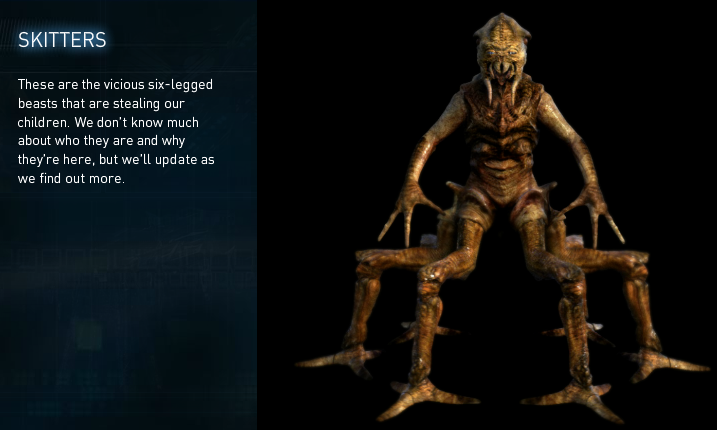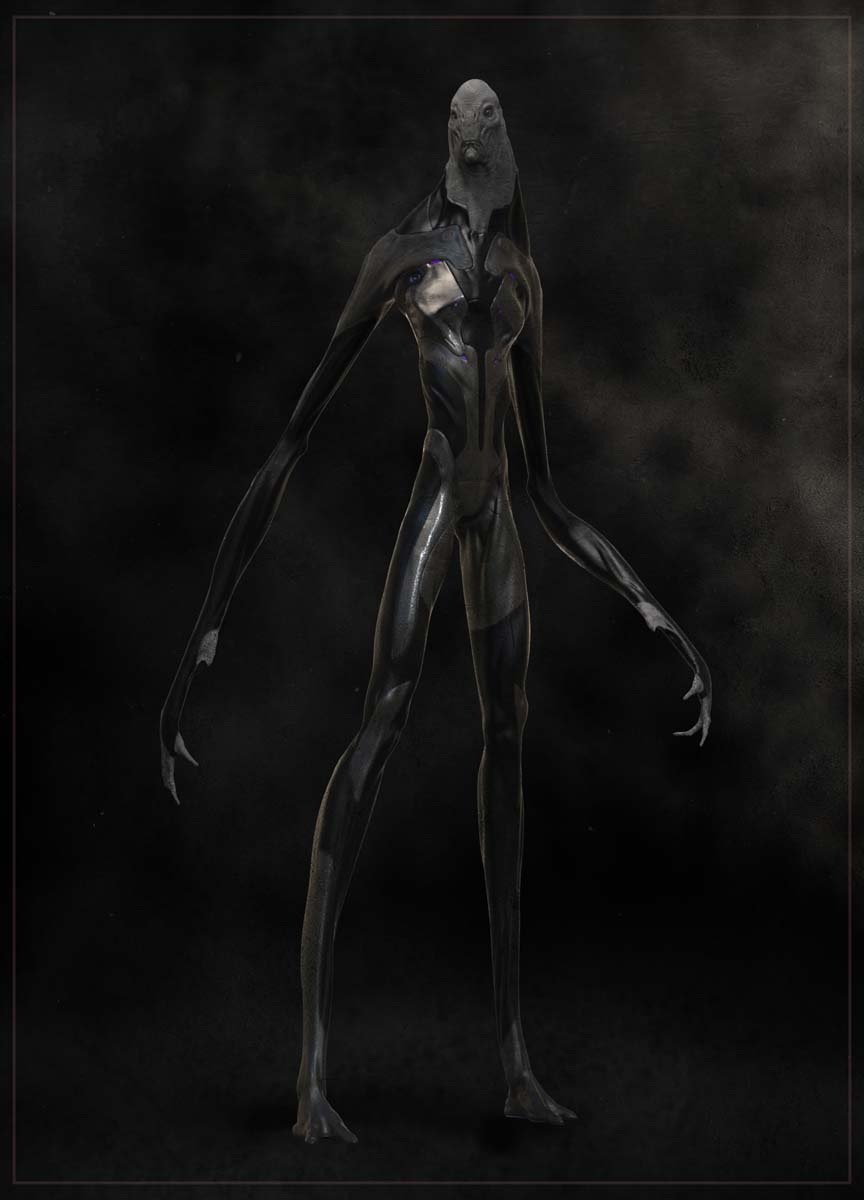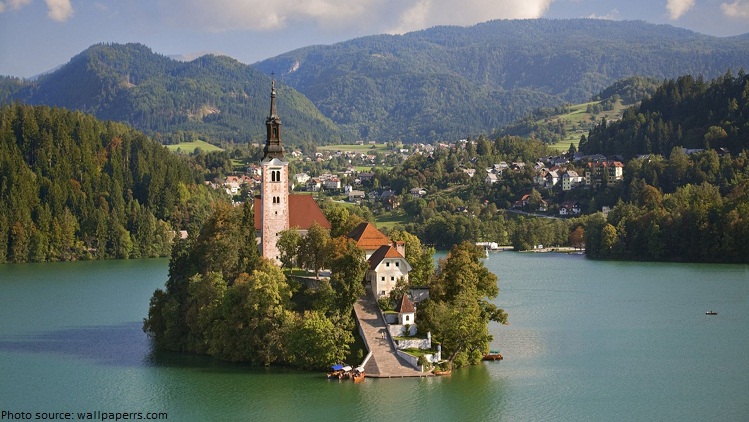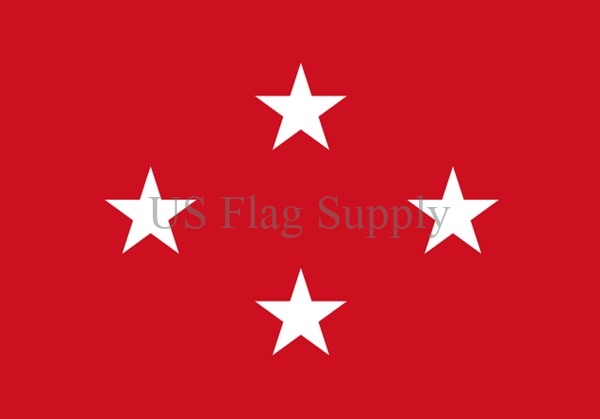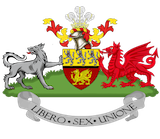PreambleFor Centuries there have been unwritten codes of conduct during times of war. As the nature of modern warfare has changed so to must the conduct of those involved in it. This document is the first attempt at a legally binding formal code of conduct in the history of Mundus. While we recognise that war is at times inevitable what is not inevitable is the horrors that nations inflict upon those with no choice about their involvement. This document seeks to protect these people and grant a measure of protection to those directly involved in conflict.
Objectives1. To create an internationally agreed code of conduct for those involved in conflict
2. To reaffirm, in writing, the human rights of those affected by conflict.
3. To create a legally binding document that will hold nations accountable for their conduct in war.
InstitutionsThe creation of this treaty will bring into existence the following institutions
1. The Convention Court – A legally binding international court that will sit in judgement of those accused of breaking this treaty. It shall consist of one judge from each signatory nation, three of these shall be picked at random to sit in judgement of a case. A judge may not sit in judgement of a person from their own nation. For the purpose of this document the Convention Court shall be known from this point simply as The Court. The Court has the right to sit in judgement of people accused of breaking the convention and if they are found guilty may pass sentence using laws from the accused own nation as a guideline. Court cases will always take place within a neutral nation and those found guilty may appeal on grounds of unfair sentence or unfair process. Appeals will be considered by all judges save those of the nations involved in the case, a majority decision will either permit or dismiss an appeal.
2. The Convention Advisory Committee – From this point on in the document referred to as the CAC. The CAC will be a panel made up of two members of each signatory nation. They shall have the power to investigate allegations of breaking this treaty. They will gather evidence and decide whether a prosecution is warranted. Should they decide a prosecution is warranted they shall issue a request for the accused to be extradited to the nation nominated for The Court. Any defendant shall be afforded the Rights granted by Articles 4, 6 and 7 of the Mundus Convention on Human Rights, this applies even if their home nation is not a signatory member of that convention.
Spoiler: Article 4 of MCUR • show Article 4 – Prohibition of Torture
No one shall be subjected to torture or to inhuman or degrading treatment or punishment.
Spoiler: Article 6 of the MCUR • show
Right to liberty and security1
Everyone has the right to liberty and security of person. No one shall be deprived of his liberty save in the following cases and in accordance with a procedure prescribed by law:
(a) the lawful detention of a person after conviction by a competent court;
(b) the lawful arrest or detention of a person for noncompliance with the lawful order of a court or in order to secure the fulfilment of any obligation prescribed by law;
(c) the lawful arrest or detention of a person effected for the purpose of bringing him before the competent legal authority on reasonable suspicion of having committed an offence or when it is reasonably considered necessary to prevent his committing an offence or fleeing after having done so;
(d) the detention of a minor by lawful order for the purpose of educational supervision or his lawful detention for the purpose of bringing him before the competent legal authority;
(e) the lawful detention of persons for the prevention of the spreading of infectious diseases, of persons of unsound mind, alcoholics or drug addicts or vagrants;
(f) the lawful arrest or detention of a person to prevent his effecting an unauthorised entry into the country or of a person against whom action is being taken with a view to deportation or extradition.
2. Everyone who is arrested shall be informed promptly, in a language which he understands, of the reasons for his arrest and of any charge against him.
3. Everyone arrested or detained in accordance with the provisions of paragraph 1 (c) of this Article shall be brought promptly before a judge or other officer authorised by law to exercise judicial power and shall be entitled to trial within a reasonable time or to release pending trial. Release may be conditioned by guarantees to appear for trial.
4. Everyone who is deprived of his liberty by arrest or detention shall be entitled to take proceedings by which the lawfulness of his detention shall be decided speedily by a court and his release ordered if the detention is not lawful.
5. Everyone who has been the victim of arrest or detention in contravention of the provisions of this Article shall have an enforceable right to compensation.
Spoiler: Article 7 of MCUR • show
Right to a fair trial and no punishment without law.
In the determination of his civil rights and obligations or of any criminal charge against him, everyone is entitled to a fair and public hearing within a reasonable time by an independent and impartial tribunal established by law. Judgment shall be pronounced publicly but the press and public may be excluded from all or part of the trial in the interests of morals, public order or national security in a democratic society, where the interests of juveniles or the protection of the private life of the parties so require, or to the extent strictly necessary in the opinion of the court in special circumstances where publicity would prejudice the interests of justice.
2. Everyone charged with a criminal offence shall be presumed innocent until proved guilty according to law.
3. No one shall be held guilty of any criminal offence on account of any act or omission which did not constitute a criminal offence under national or international law at the time when it was committed. Nor shall a heavier penalty be imposed than the one that was applicable at the time the criminal offence was committed.
4. This Article shall not prejudice the trial and punishment of any person for any act or omission which, at the time when it was committed, was criminal according to the general principles of law recognised by civilised nations.
5. Everyone charged with a criminal offence has the following minimum rights:
(a) to be informed promptly, in a language which he understands and in detail, of the nature and cause of the accusation against him;
(b) to have adequate time and facilities for the preparation of his defence;
(c) to defend himself in person or through legal assistance of his own choosing or, if he has not sufficient means to pay for legal assistance, to be given it free when the interests of justice so require;
(d) to examine or have examined witnesses against him and to obtain the attendance and examination of witnesses on his behalf under the same conditions as witnesses against him;
(e) to have the free assistance of an interpreter if he cannot understand or speak the language used in court.
For the purpose of this Treaty the Articles have been arranged into groups of people or institutions affected by conflict. For each a definition shall be given followed by their Responsibilities and Rights if appropriate.
1. National GovernmentsA National Government shall be defined as one that is recognised by the international community as being the legislative authority for any given territory.
1.1. National Governments must ensure that their military personnel are aware of this document, the protection it affords and the responsibilities it establishes.
1.2. National Governments must ensure that all military personnel comply with this document at all times.
1.3 National governments have the right to expect the international community to ensure hostile nations comply with this document.
1.4 National governments have the right to declare war.
1.5 National governments have the right to take proportional action against groups described as Terrorists. For the purpose of this document a Terrorist is defined as someone who does not belong to a national government organisation or military force, who uses either violence or the prospect of violence to change government policy, gain territory, goods or money, interfere with the laws of a nation or carries out acts of sabotage.
1.6 National Governments must inform the nation of any people held as Prisoners of War defined by this document of their imprisonment and comply with the relevant sections.
1.7 National Governments must refrain from the use of the following weapons.
a) Nuclear Weapons - These are defined as any in which a radioactive source is used to increase the yield or destructive power of an explosion.
b) Chemical Weapons - These are defined as any weapons that use a chemical agent intended to cause permanent damage or death to an individual.
c) Biological Weapons - These are defined as any weapon that uses living organisms or replicating entities to cause death, disease, disfigurement or disability.
d) Unmarked Landmines - Landmines must be contained within a marked area and their location marked, it is the duty of the deploying nation to ensure the removal of these once hostilities have finished. Nations using these will be liable for civilian injuries or deaths.
1.8 National Governments may not use another nations breach of this treaty as justification for breaking the treaty themselves.
1.9 Parties to a conflict must immediately take all possible measures to search for and collect the wounded, sick and shipwrecked, to protect them against pillage and ill-treatment and ensure their adequate care, as well as to search for the dead and prevent their remains being despoiled
1.10 National Governments shall not employ weapons, projectiles and methods and materials of warfare designed to cause , or can be expected to cause widespread, long-term and severe damage to the natural environment.
2. Members of The Armed ForcesA member of the Armed Forces is defined as someone who has received formal military training and is under the direct control of national government, they must be wearing a military uniform that consists of a recognition of rank, unit, nationality and section of the Armed Forces (E.g Must have rank slides, regimental emblem, nations flag or other recognized symbol and Army/Navy/AF emblem or words). This term applies to both volunteers, conscripts and those undertaking national service.
2.1 No child shall be permitted to be a member of The Armed Forces (for the purpose of this document a Child is defined as someone being under the age at which voting is permitted, if voting is not permitted in a signatory nation it is the age at which someone can marry without parental consent)
2.2. No member of the Armed Forces shall be given an order that contradicts this document.
2.3 No member of the Armed Forces shall be punished for acting in accordance with this document.
2.4 Members of the Armed Forces shall do all that is reasonable to avoid civilian casualties.
2.5 Members of the Armed Forces have a duty of care to civilians in territory they control.
2.6 Members of the Armed Forces who present themselves to the enemy unarmed and unwilling to fight are to be accorded all the rights laid out in the relevant section of this document.
2.7 Members of the Armed Forces injured in combat are to be afforded medical care regardless of nationality as long as doing so does not place others in danger.
2.8. Members of the Armed Forces may not intentionally damage or take the property of civilians.
2.9 Members of the Armed Forces may not take as trophies of war the personnel belongings of anyone.
2.10 Members of the Armed Forces killed in combat are to be afforded when possible a burial inline with their religious beliefs, should this not be practical they are to be treated with dignity. Conflicting nations should if possible hand bodies over to representatives of the home nation for burial, if this is impossible they are to be buried with dignity, their remains marked and location and identity given to the home nation.
2.11 Members of Armed Forces captured in combat shall be protected against all acts of violence and reprisals. It is the duty of all commanding officers to ensure compliance.
2.12 Members of the Armed Forces shall note be held responsible for an act they has not committed.
2.13 Members of the Armed Forces serving at sea are to render assistance to all people who are shipwrecked. The term "shipwrecked" means military or civilian persons in a perilous situation at sea or on any other waters following a misfortune which has befallen them and who refrain from any act of hostility. Should rendering assistance place the vessel in danger then they are exempt from prosecution.
3. Members of MilitiasA Militia is a non-permanent military force. They may be raised either spontaneously or in times of need. A militia will be defined as a force that is armed, has a military leader and wears a distinctive symbol or uniform that marks them out as not being a civilian.
3.1 Members of Militias shall be bound by the same Articles as Members of The Armed Forces.
3.2 Captured members of Militia's are to be afforded the same treatment as Prisoners of War.
3.3 It shall be the responsibility of the individual members of the Militia to ensure they are clearly not identifiable as civilians.
3.4 Militias should undertake no action that knowingly endangers the lives of civilians.
4. Members of Emergency ServicesMembers of Emergency Services are defined as those people who are not members of the Armed Forces and who in peacetime would work in the areas of Law Enforcement, Fire and Rescue and Emergency Medical Care.
4.1 Members of the Emergency Services should not be prevented from carrying out their duties even in occupied territory.
4.2 Members of the Emergency Services are expected to treat combatants equally.
4.3 Members of the Emergency Services are to be clearly identified in conflict areas.
4.4 Members of the Emergency Services in nations in which these duties are undertaken by non-front line military forces are to be afforded the same treatment as prisoners of war.
5. Prisoners of WarA Prisoner of War (POW) is defined as an enemy combatant , as defined by all Articles to this point, who is either unwilling or unable to continue fighting and has placed himself into the care of hostile forces.Any person suspected of a crime however is to be held in accordance with conditions granted to accused criminals remanded in custody. To avoid uncertainty and prevent any arbitrary measures at the time of capture, the convention specifies that any person taking part in hostilities and captured is presumed to be a prisoner of war and is treated as a prisoner of war, even in case of doubt as to his status. In the latter case, the question will be decided by a tribunal at a later date.
5.1 POW's may not be executed, tortured or otherwise mistreated.
5.2 POW's may be imprisoned for the duration of hostilities. At the cessation of hostilities they must be returned to their home nation, or should the POW feel they would face unfair treatment upon their return to any friendly nation.
5.3 POW's are to be afforded health care, nutrition, shelter, warmth and safety.
5.4 POW's are to maintain military discipline, this may be carried out by an appointed officer /NCO from their home nation.
5.5 POW's identities should be given to their home nation as soon as possible, if necessary the CAC will act as an intermediary.
5.6 POW's may not be used as human shields.
5.7 POW's breaking the law of the nation they are imprisoned in may face civilian trials in accordance with the law of the land.
5.8 POW's may not be forced to work to aid the nation they are imprisoned in.
5.9 POW's may not be used as slave labour.
5.10 POW's may be afforded the opportunity to work but should be recompensed for any work they carry out.
5.11 POW's shall have the right to correspond with their families and to receive relief.
5.12 A POW attempting to escape understands weapons may be used against those who escape or attempt to escape, but such use should only be made as a last resort and must always be preceded by warnings appropriate to the circumstances.
5.13 POW's are entitled to make wills . The Convention prescribes that wills of prisoners of war shall be drawn up so as to satisfy the conditions of validity required by legislation in their countries of origins.
6. SpiesA spy is defined as an individual who has used some manner of ruse to gain access to the territory of a hostile nation to gain intelligence or carry out acts of sabotage. A person can not be a spy if they are wearing their home nations military or militia uniforms.
6.1 Spies may be imprisoned to face trial on charges of espionage.
6.2 Spies must be afforded the right to a fair trial as laid down in the MCUR.
6.3 Spies may not be tortured.
6.4 Spies may be executed if Article 6.2 permits.
7. Specialist Members of the Armed ForcesA specialist member of the Armed forces shall from this point on be refered to as a "Specialist", they are defined as someone carrying out either of these two roles.
a) A medic. A member of the Armed forces who enters the combat zone unarmed in order to carry out medical duties.
b) A chaplain. A member of the Armed Forces who enters the combat zone unarmed in order to attend to the spiritual needs of their colleagues.
7.1 Specialists may not under any circumstances carry arms, should they do so they must be treated only in accordance with Article 2.
7.2 Specialists must wear clearly identifying emblems on their uniform. These shall be a white armband with a red cross for Medics, this shall be worn on their right arm. chaplain's will wear a white armband with the word chaplain written on in red on their right arm.
7.3 Vehicles belonging to specialists must be marked, this for medic will be with a white circle with a red cross, for chaplains a white circle and the letter C in red. These markings should be visible from both the air and ground.
7.4 All care is to be taken to avoid specialist casualties.
7.5 Specialists who are taken captive by hostile nations are to be afforded all the rights or POW's and in addition permitted to carry on their duties within places of detention.
7.6 Specialists are bound to treat hostile combatants no different to those from their own nation.
8. CiviliansA civilian is anyone who has yet to be defined by any of the definitions of this treaty.
8.1 All possible care should be taken to ensure no civilian casualties.
8.2 Civilians may not be used as human shields.
8.3 Military equipment and supplies should not be placed in residential areas
8.4 Civilians property must be repsected by occupying forces. Property remains the possession of the original owner even if their nation is occupied.
8.5 Civilians may not be forced to billet members of the armed forces or militia fighters
8.6 Civilians may not be detained without just cause and must be treated in accordance with the MCUR.
8.7 Civilians helping the injured or sick may not be punished.
8.8 Civilians may be permitted to leave a combat zone
8.9 Agencies not attached to a national government who are helping civilians are not to be targeted and are permitted to go about their work unimpeded.
8.10 Civilians may not be forced to provide equipment or supplies to occupying forces. They may however sell items to occupying forces without the fear of reprisals.
8.11 Civilians access to Health Care, Water, Law and Order and Sanitation must be ensured by occupying nations.
8.12 Civilians in occupied territory may not be conscripted into the occupying armed forces against their will and they shall face no punishment for refusing military service.
8.13 Civilians rights under the MCUR are still valid.
9. SEXUAL ABUSE9.1 National governments recognise rape, sexual slavery, enforced prostitution, forced pregnancy, enforced sterilization, or any other form of sexual violence of comparable gravity as crime against humanity if the action is part of a widespread or systematic practice.
9.2 For the purpose of this treaty rape is defined as any of the following.
a) a type of sexual assault usually involving sexual intercourse or other forms of sexual penetration, including use of a foreign object, perpetrated against a person without that person's consent.
b) An act of oral penetration.
c)Rape is any penetration committed by the perpetrator through coercion or through taking advantage of a coercive environment
9.3 Signatory nations agree that in the event of amnesties being granted for crimes committed during war the crimes outlined in this section may not be granted an amnesty.
10. COMPLIENCE WITH THE TREATY10.1 Should a signatory nation be suspected to have broken this treaty they will face investigation by the CAC and should a case be found to be valid they will face trail by the Court.
10.2 Cases may be brought at various levels ranging from individual soldiers to Heads of Government. The statement "I was only following orders" or words to this effect shall not be considered a valid defence
10.3 Nations which sign this treaty are expected to comply with it regardless of the status of the hostile force they face.
10.4 It is the duty of all nations signing this treaty to ensure signatory nations comply with this treaty at all times.
11. CHANGES TO THE TREATY11.1 On the anniversary of this treaty signatory nations will meet in Uppsala to reaffirm this treaty or amend it as they see necessary.
11.2 Amendments must gain 3/4 of the signatory nations approval to be valid.
11.3 Any nation may join this treaty at any time by sending each signatory nation a notarised version of the treaty.
11.4 Nations wishing to withdraw from the Treaty may do so by not attending the meeting outlined in 10.1
12. DECLERATIONWe the undersigned nations hereby agree to be bound by the terms of this treaty for 12 months from its signing. We will abide by all its articles and support the work of CAC and The Court. We hereby also agree to abide by all the final judgments of The Court.
Signatory Nations- The Kingdom of Dartfordia
- The Kingdom of East Moreland
- The Holy Empire of Achkaerin
- The First Empire of Rokkenjima
- The Odinist Republic of Åland
- The Andino Republic of Nueva Ardia
- The Republic of Marseilles
- The Duchy of Aquitaine
- The Divine Queendom of Lodja
- The Commonwealth of the Unified Iwi
- The Kingdom of Vaguzia
- The Kingdom of Seaforth
- The Federal Democratic Empire of Quintelia
- The Ecclesiastical State
- The Empire of Neu Uburzis
- The Six Dukedoms of Bakkermaya
- The United Republic of Safraen
- The Republic of Lakhzovia
- The Second Imperial Chinese Republic
- The Armed Himeyan Republic
- The Reunified Socialist Republic of New Derusmia
- The Kingdom of Tytor
- The Diarchy of Hassfurt
- The Republic of Josai
- The Neo Qwenye Federation
- The Empire Of Kindricks
- The Federation of Izhitsa
- The Empire of Ikhvan
[/list]


 ?? determines to weaken their armies, while at the same time defending the Holy Sites. In c.1096 a Papal Bull is issued that promises any soldier who fights for the faith in NotJerusalem a place in heaven. As such thousands of potential "rebels" take up the call, including some monarchs, and head to NotJerusalem.
?? determines to weaken their armies, while at the same time defending the Holy Sites. In c.1096 a Papal Bull is issued that promises any soldier who fights for the faith in NotJerusalem a place in heaven. As such thousands of potential "rebels" take up the call, including some monarchs, and head to NotJerusalem.






